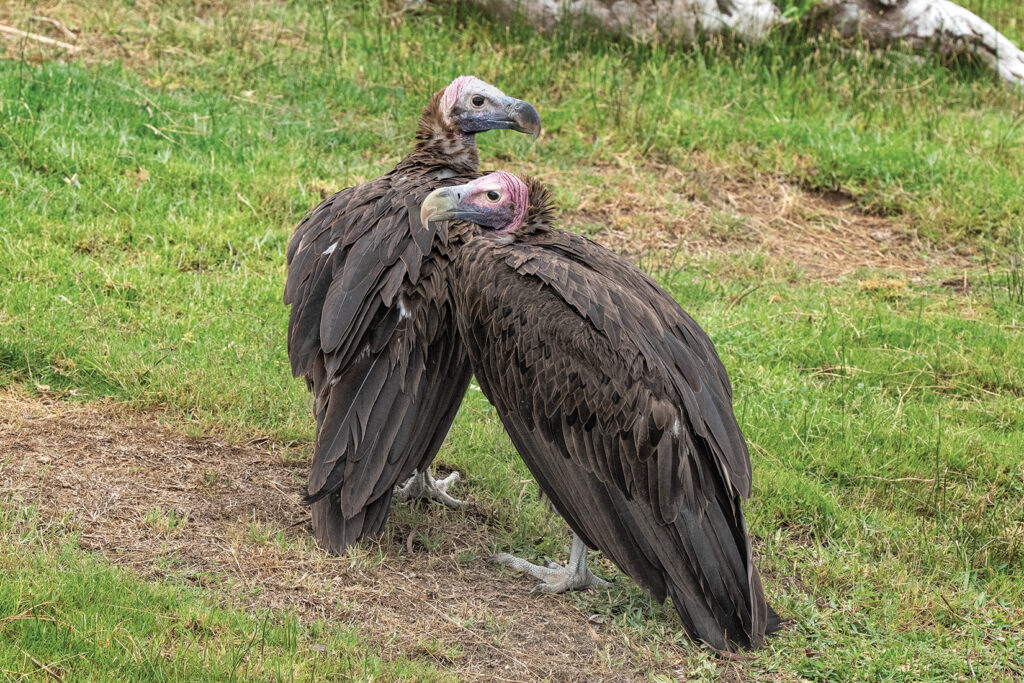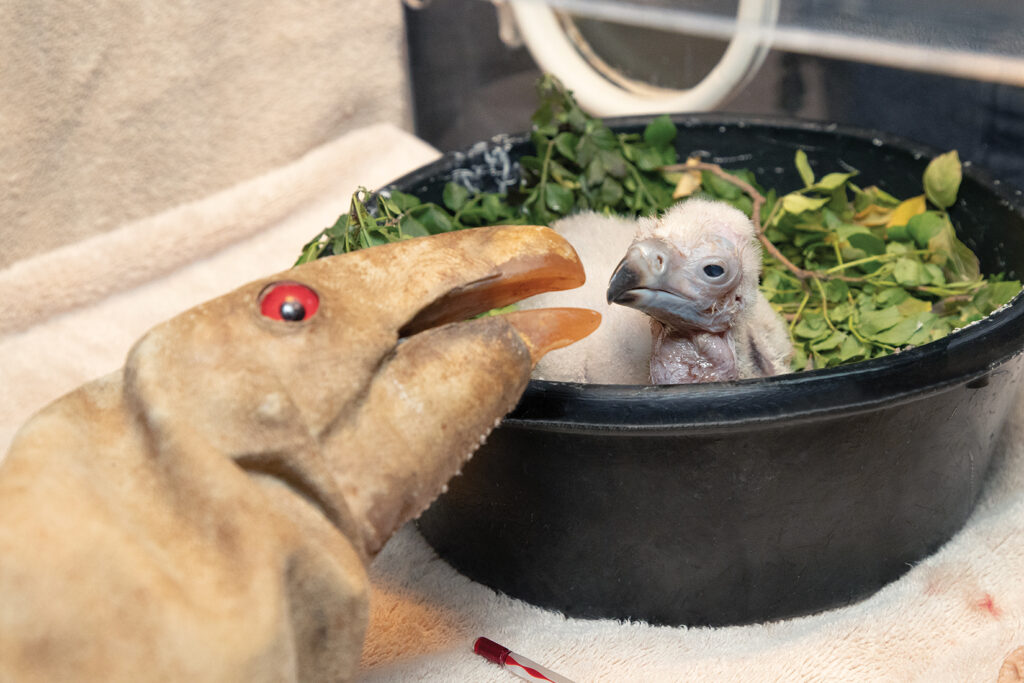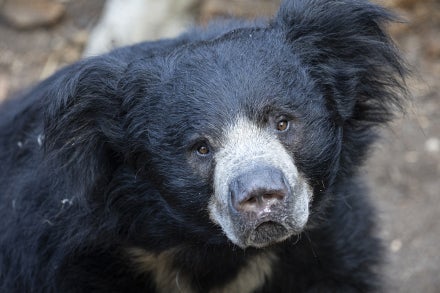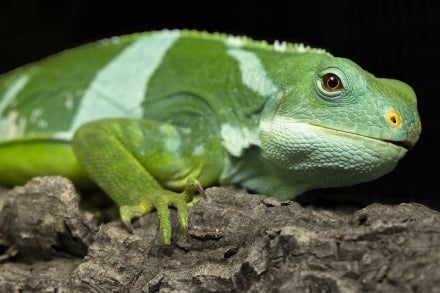
We have some very exciting news to share! Some of you may remember last year’s blog post introducing you to our two very exciting new residents to the Africa Woods exhibit, our new pair of lappet-faced vultures. Last year we were incredibly optimistic with the arrival of our very first egg laid by this pair, infertile but an excellent sign of things to come. Well, this year we were not disappointed.

Early in the morning on January 27, 2020, we were excited to see an egg had been laid in their beautifully made nest. We carefully removed it to incubate and monitor it and replaced it with a fake egg (sometimes called a dummy egg) to keep its place in the nest. This is a common practice used especially with valuable eggs to ensure their safety, and is used with many bird species, like we do with our group of California condors. After a bit, we removed the fake egg, and the female laid another egg—again, a common behavior. What happened with her first egg? After 10 long days of careful monitoring in our incubator, we were beyond thrilled to discover that the egg was fertile!
Like many vultures the incubation period for lappet-faced vulture eggs is a lengthy one. We had a long 58 days to wait for a baby. During this time, the egg was carefully monitored by our very talented incubation specialists ensuring that the growing embryo was developing according to schedule. Meanwhile, we were making other plans; our very experienced California condor team would be raising this newest addition at our condor facility with all the same methods as we use to raise our condor chicks (once it hatched)!
On March 25, for the first time in Safari Park history and after years of hoping and a lot of hard work, a lappet-faced vulture chick hatched and we had a healthy baby girl! She was named Teengo, which is the pronunciation of a Zulu word uthingo, which means “rainbow.” Weighing in at just under 5.29 ounces, she was and is everything we had hoped for.
Teengo was quickly settled into her “nest”— a snuggly bowl with warm towels. She was also introduced to her new “mom,” a California condor puppet. We’ve used these puppets for decades to feed our growing condor chicks without the birds seeing their human caretakers in order to give them a more natural upbringing. The puppet completely covers the human hands that provided the daily care this little one needed to grow.

Teengo remained in a small brooder for the first 30 days, but she grew fast! Her nest was adjusted to grow along with her. We slowly incorporated bigger and bigger sticks for her to sit upon, similar to what a wild nest is like. This gave her growing feet and toes something to grip, allowing her to develop muscles and balance. She eventually outgrew this set up and was moved to a larger nest area that had a viewing window to the outdoors where there were larger vultures. The window let Teengo watch and learn from the other vultures, as a chick must, all the while continuing to be fed by the puppet.
Our tiny little baby is just over 4 months old now and weighs almost 16 pounds and her wingspan is close to 9 feet! She’s graduated to a larger outside space where she will soon meet an adult vulture who will mentor her. This will help her transition to being a full-fledged member of our growing vulture family here at the Safari Park. Oh, and that second egg? It, too, was fertile. The chick (a boy!) was also raised by our devoted, skilled Condor Team.
Lappet-faced vultures continue to be a critically endangered species, along with so many of the world’s vultures. All of us at the San Diego Zoo Safari Park are so proud to share Tenngo’s story as we approach International Vulture Awareness Day (September 5, 2020). We hope that her story inspires you to learn more about how important vultures are to our planet and how truly special they are!
Join us in honoring vultures of all kinds on International Vulture Awareness Day, Saturday September 5, 2020. Visit our special page of things to watch, discover, and do.
Erin Massey is a senior wildlife care specialist at the San Diego Zoo Safari Park. Read her recent blog, Condor Cam: Here We Go, Again.




